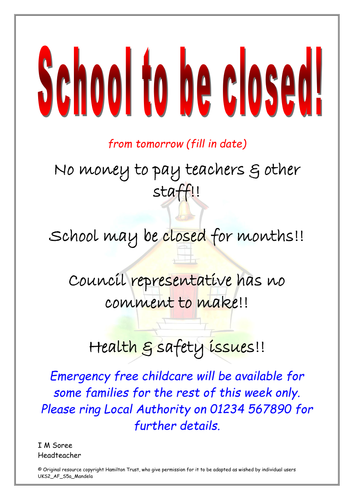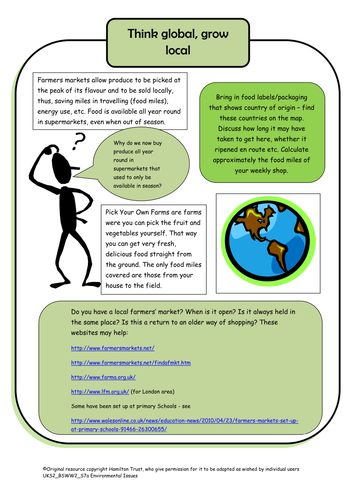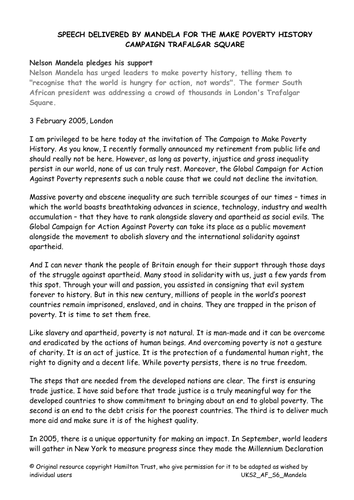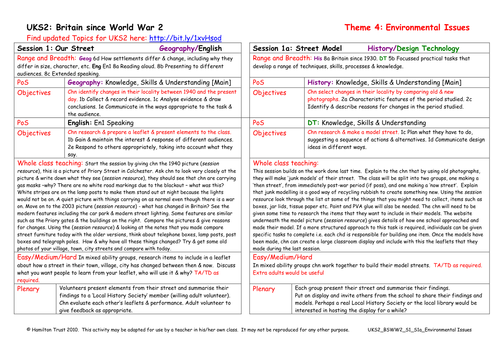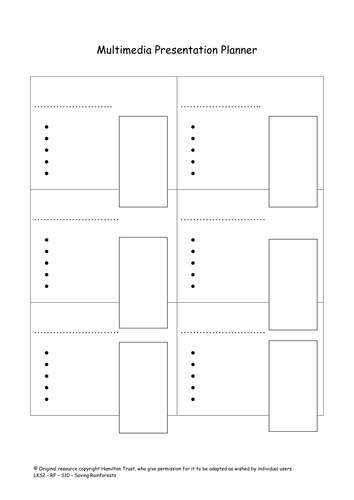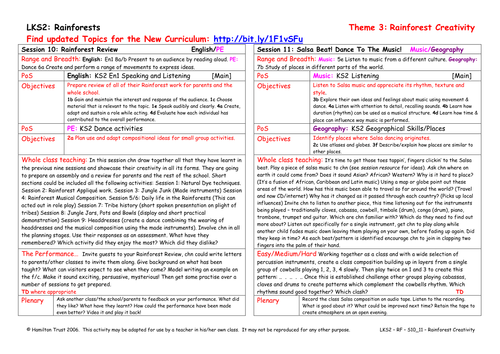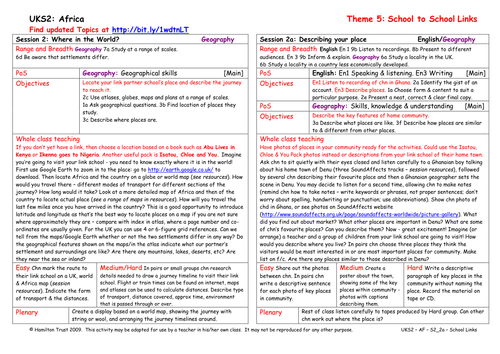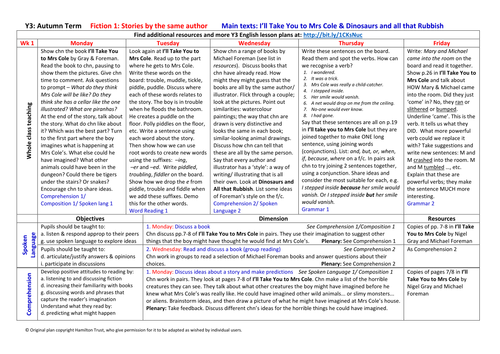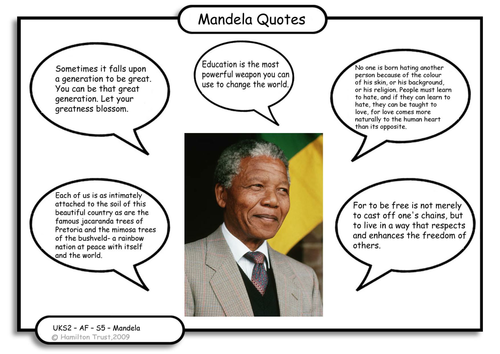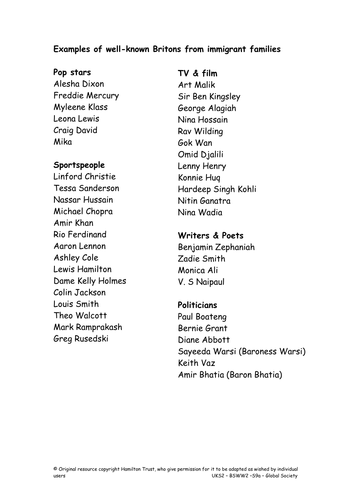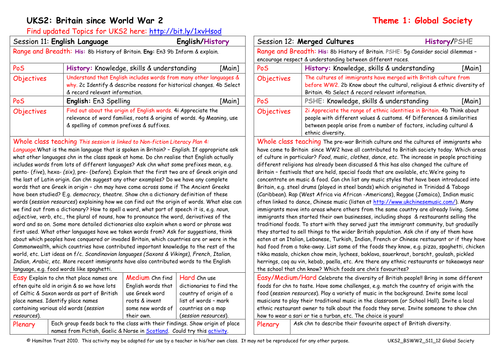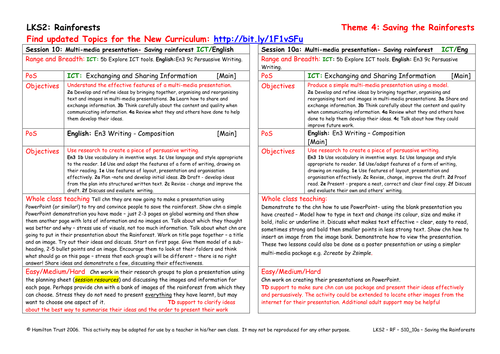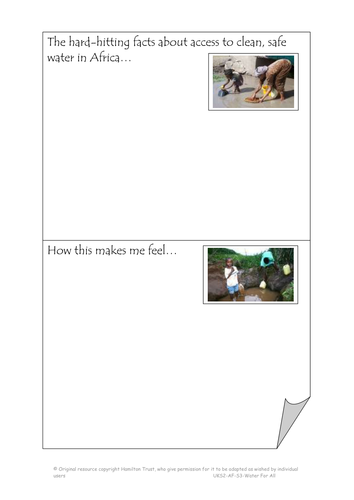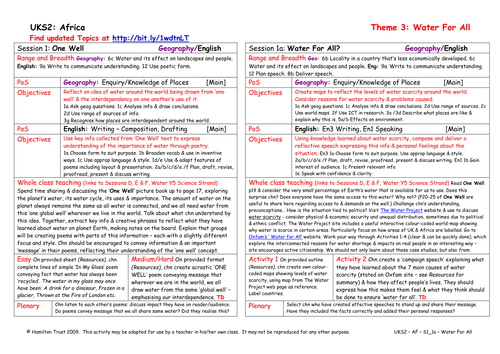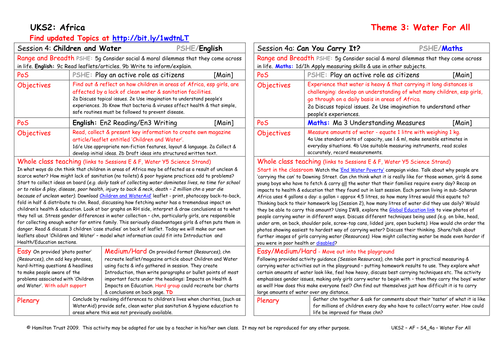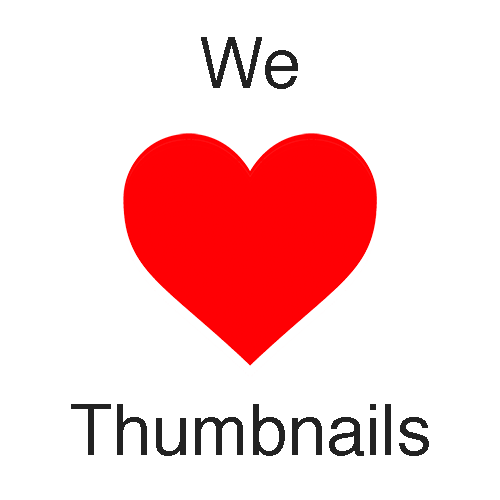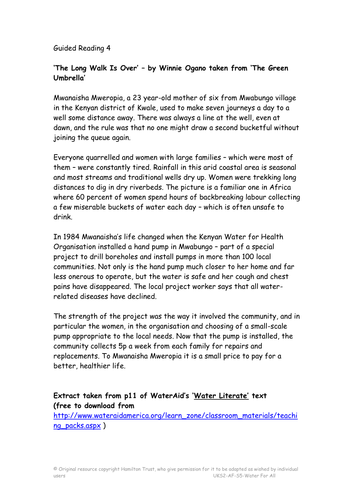
397Uploads
10040k+Views
11644k+Downloads
English

The Right to Education
Through role play children consider for themselves the impact of no access to school.
They plan a poster campaign or write a persuasive letter to reopen their school. Links to Children’s Rights to Education.
Suitable for years 5 and 6.

Think Global, Grow Local
Discuss Farmers Markets and Pick Your Own food taking into consideration food miles, energy use, carbon footprint and produce. Calculate food miles involved in weekly shop (using labels and packaging from supermarkets). Children write an acrostic.

Household Gadgets
Children discuss labour-saving gadgets and chores which are still time-consuming or unpleasant. They then work in groups to design their own gadget and present it to the rest of the class as in the Dragon’s Den.

Mandela and Poverty
Children study a Mandela speech on poverty and analyse why it’s so importance in terms of content, context and process. Children plan and write their own speech on the right to education.
Suitable for years 5 and 6.

Our Street
Children look at streets around the school, houses, shops and street furniture. Compare today with the 1940s. Use old photos of home town/village or city as resources. Children produce a leaflet showing how their street has changed between then and now.

Daily Life
Children describe their daily lives. They think about the things they do regularly each day, each week and at weekends. Look at the features of diaries and then children keep a diary for a week to share with their link school friends. Compare with lives of other children.
Suitable for years 5 and 6.

Multi-media presentation - Saving rainforest
In this session children look at a multi media presentation prepared by you which has some good bits and some that need improving!
Children then use what they have learnt to plan and then start work on their own using notes from previous sessions.

Rainforest Review
This session brings together all the parts of the rainforest creativity theme. From music created with made instruments, dance and the wearing of headdresses to the displaying and showing of pots. Celebrate everything that has been achieved.

Describing Your Place
Listen carefully to some children in Ghana describing their home town or use descriptions from your link school friends of their town. Imagine the teacher and some children from your link school are going to visit your town! Describe the places they should visit.
Suitable for years 5 and 6.

Year 3 Fiction 1: Stories by the same author (Michael Foreman)
Using the delightful illustrations and books of Michael Foreman (Dinosaurs and All That Rubbish and I'll Take You to Mrs Cole), children have many opportunities to practice simple, compound and complex sentences with powerful verbs. They then create their own stories based around I'll Take You to Mrs Cole, by Nigel Gray and Michael Foreman.

Mandela and Education
This session examines through real stories the varied reasons why 40 million children in Africa don’t attend school. Children play a ranking game to explore obstacles to education.
Suitable for years 5 and 6.

Well-Known Immigrants
Most immigrants who have come to Britain have brought skills with them. Many immigrants or descendants of immigrants have become well-known in the fields of sport, entertainment, politics and the professions. Children research and list examples.

English Language
The English language contains words from many different languages. Children investigate old Saxon and Celtic words used in British place names, Greek prefixes and word roots that are used in English words and words that have been introduced from other languages.

Multi-media presentation - Saving rainforest 2
Children complete their presentations started in Session 10, bringing together the information they have collected in previous weeks and images selected from the internet.
Children watch the presentations and give feedback to their peers.

Campaign for Clean, Safe Water
Watch campaign films that educate people about the dirty water crisis in Africa. Children consider the hard-hitting facts learned and record how this makes them feel. Discuss what makes these films effective, in preparation for planning own films in the next session.
Suitable for years 5 and 6.

One Well
Imagine that all the water on Earth came from one well! Children learn that the amount of water on our planet never changes and that we are all connected by the way we draw water from the same source. Children then convey this understanding through poetry.
Suitable for years 5 and 6.

Children and Water
Using an informative and clear leaflet downloaded from WaterAid, children read and discuss how children in parts of Africa are affected by lack of clean water and sanitation. Facts are collected before creating own posters and leaflets entitled ‘Children and Water’.
Suitable for years 5 and 6.

School's Out!
What do children do when they are not in the classroom? At playtimes, evenings and weekends? Discuss sport, games and hobbies. Write instructions for a playtime game or making a craft object to send to their link school friends. Try an African game or craft.
Suitable for years 5 and 6.

Meet Amina In Malawi
Dramatic changes to people’s lives occur when access to clean, safe water and latrine facilities are brought to a community. Children discuss ‘The Long Walk Is Over’ and read Amina’s story. They make ‘before and ‘after’ diary entries for her, expressing this change.
Suitable for years 5 and 6.

Spotlight on South Africa 2010
In 2010 the eyes of the World will be on South Africa and a country where once no sports teams visited will be a focal point for 32 teams and their fans. Children find out more about the 9 host cities and create tourist guides for each.

